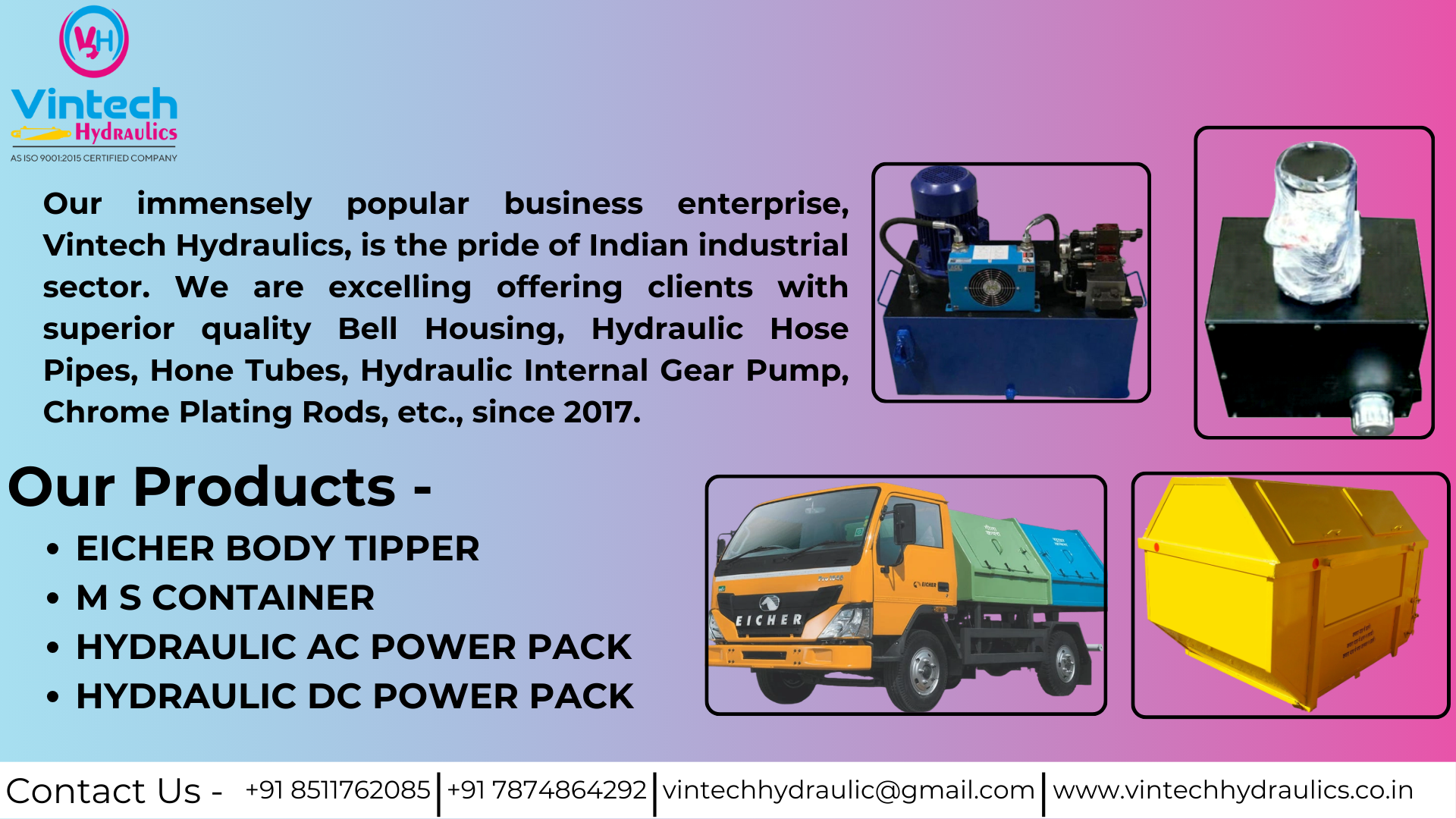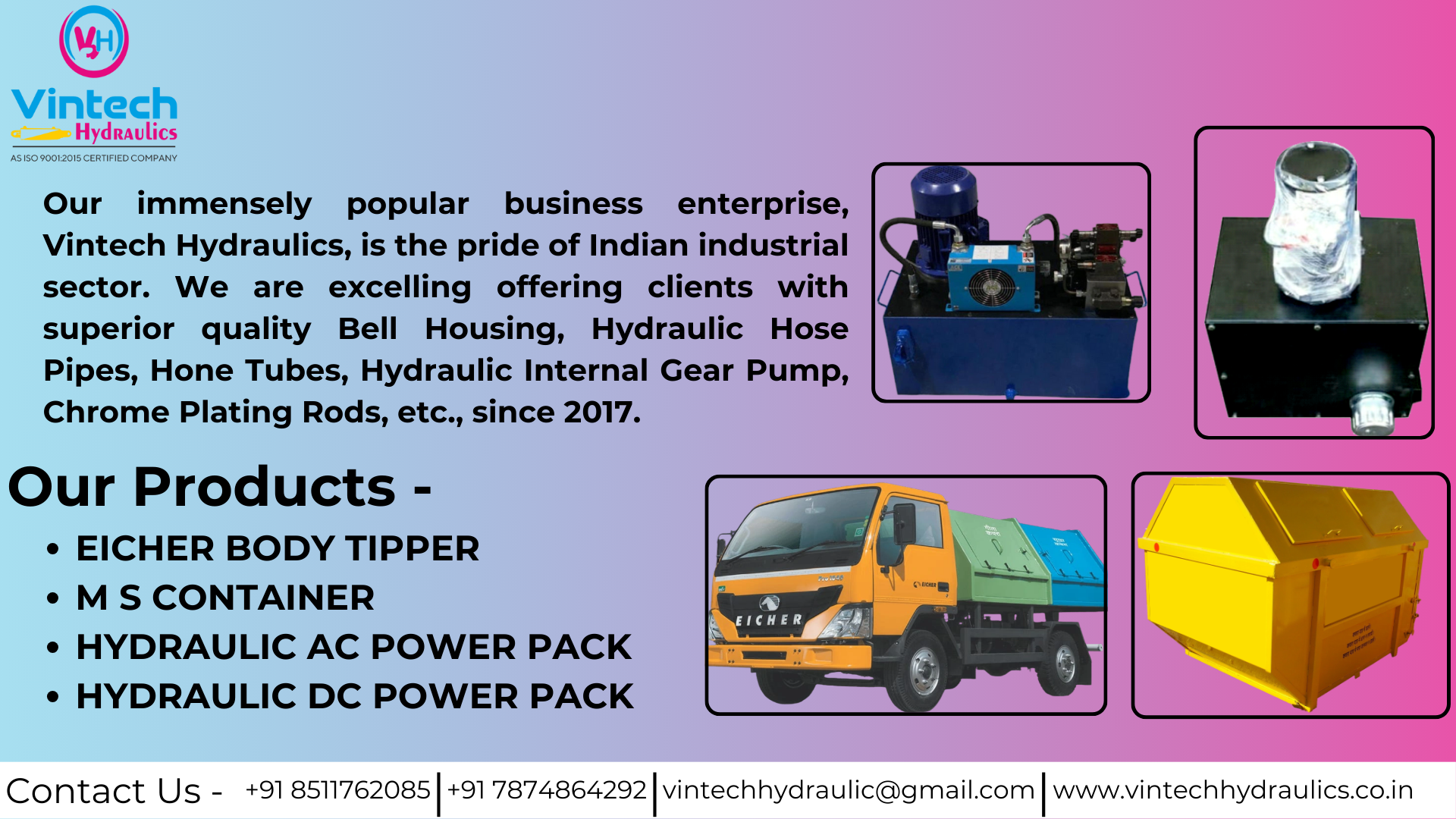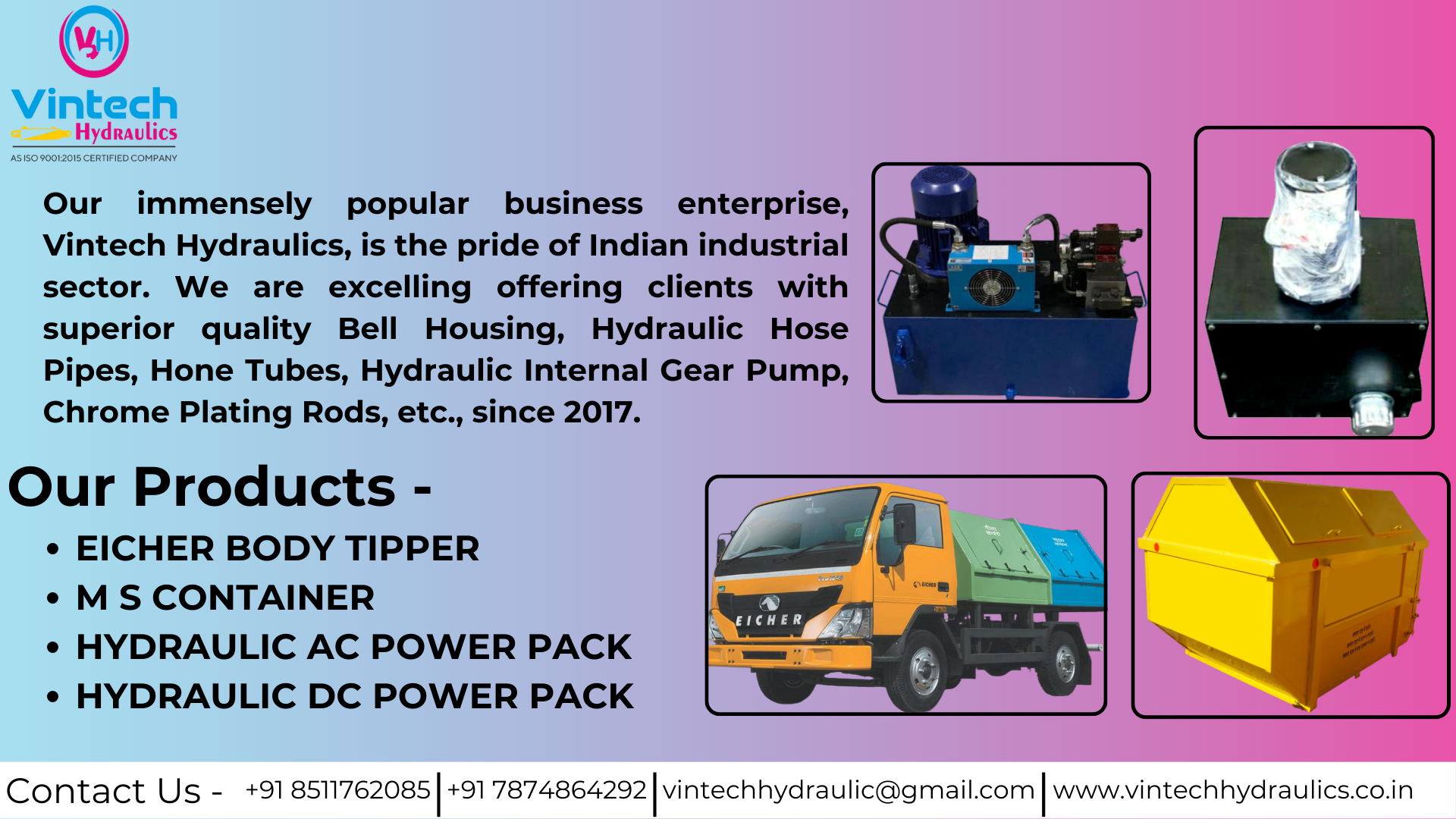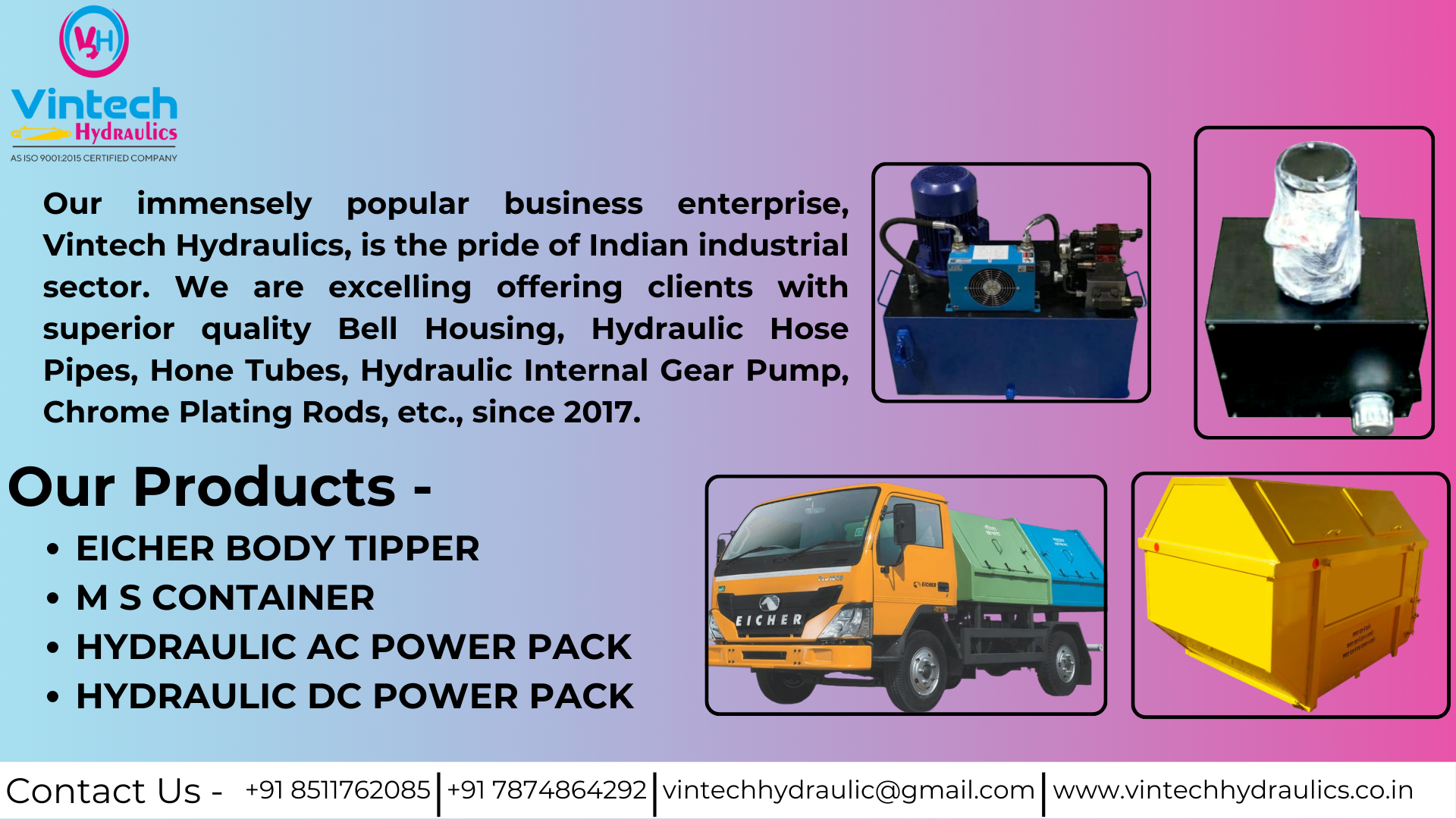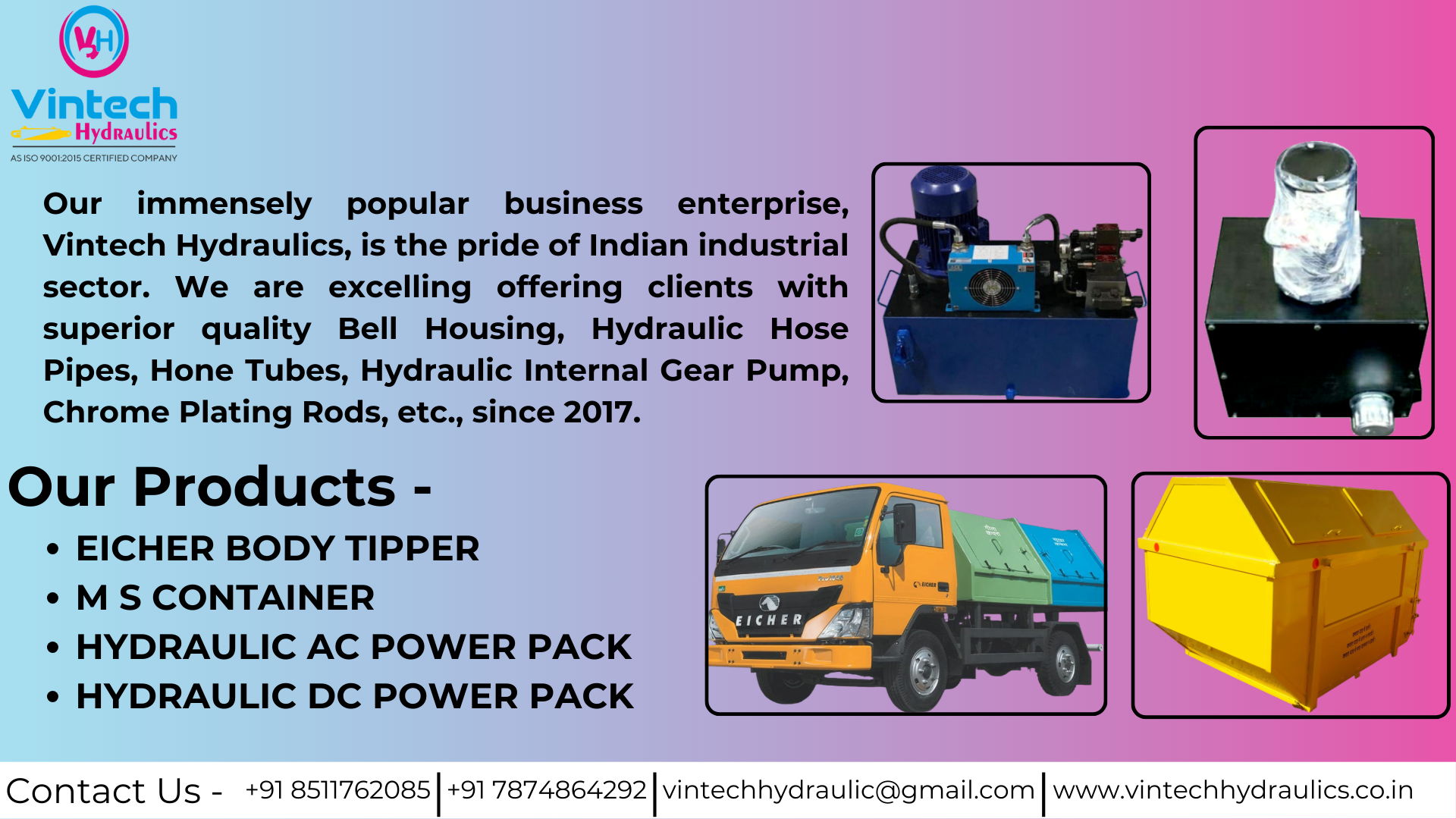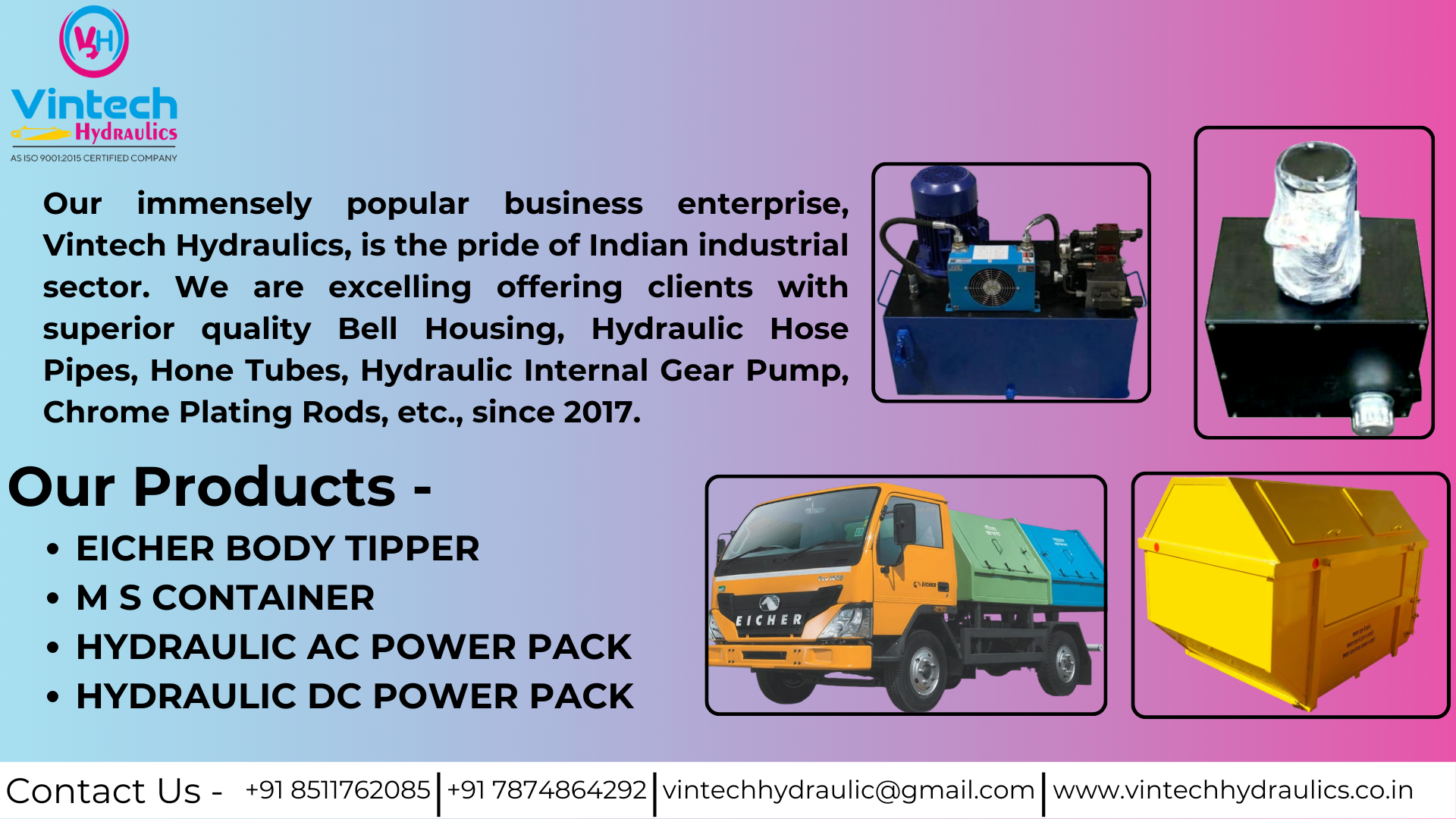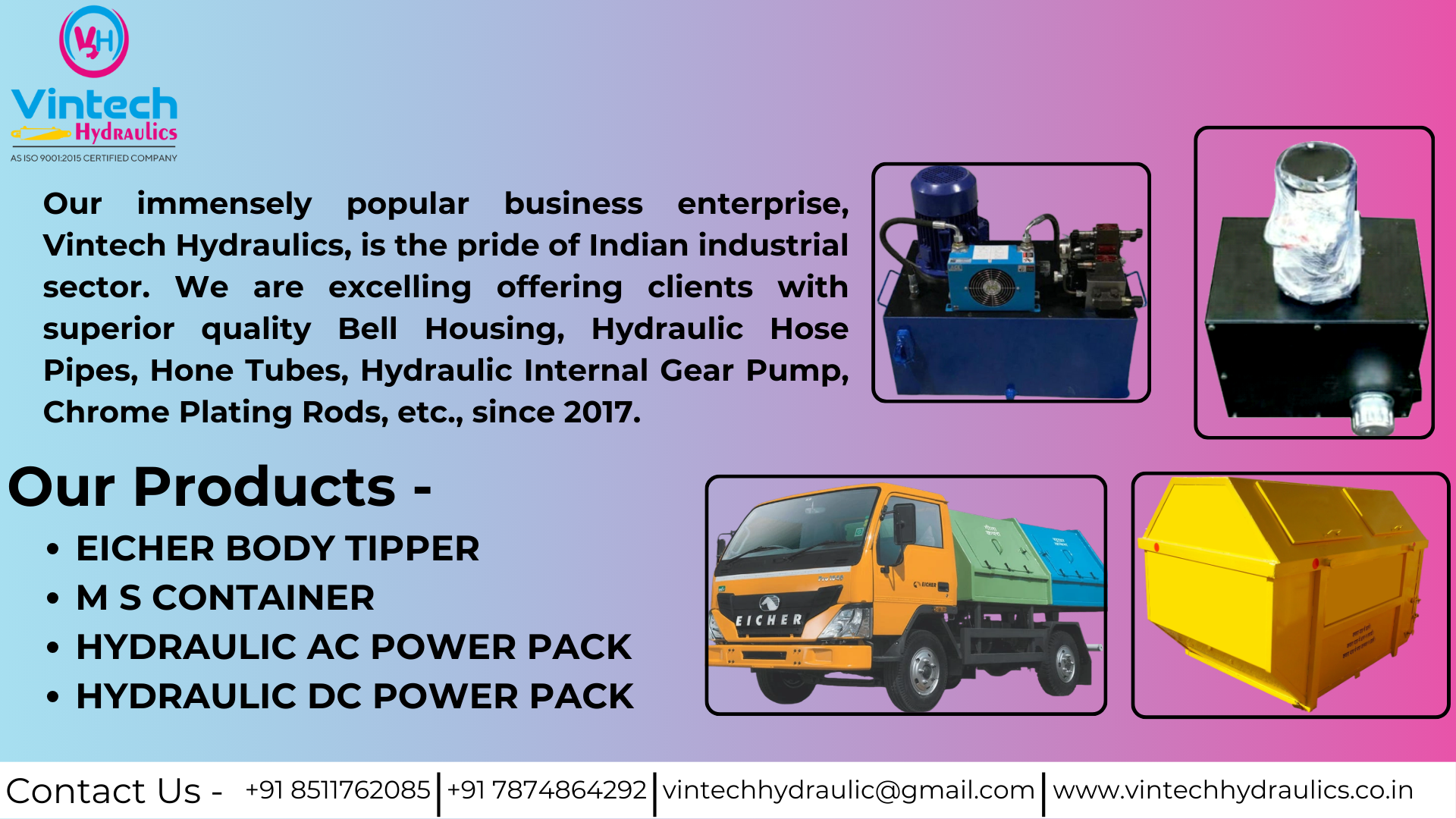
Hydraulic Baling Press Manufacturers in India
Hydraulic Baling Press Manufacturers in India
Description
A Hydraulic Baling Press is an industrial-grade machine used to compress various recyclable or waste materialsŌĆösuch as paper, plastic, metal, fabric, and cardboardŌĆöinto compact bales using hydraulic force. Leading manufacturers in India design these machines to suit different applications, from waste management to scrap processing, offering both vertical and horizontal balers with manual or automatic operation.
How ItŌĆÖs Made
-
Frame Construction
Heavy-duty structural steel is used for the mainframe to ensure strength and stability during high-pressure operations. -
Hydraulic System
Comprises a hydraulic cylinder, pump, and control valves designed to exert high compressive force (5ŌĆō200 tons or more). -
Platen & Ram Assembly
A steel compression plate (platen) connected to the hydraulic ram moves vertically or horizontally to compress the material. -
Control Panel
Electrical or PLC-based systems manage press cycles, safety features, and operation logic. Chamber & Door Mechanism
Fabricated baling chamber with reinforced doors and locking systems for safe operation and bale ejection.-
Bale Ejection System
May include manual ejection levers or automatic hydraulic bale ejectors for convenience and speed. -
Finishing
Anti-corrosion paint, safety guards, and operator panels are installed for longevity and user safety.
Where ItŌĆÖs Used
-
Paper & cardboard recycling industries
-
Plastic bottle and packaging waste units
-
Fabric, jute, cotton recycling
-
Metal and aluminum scrap yards
Industrial production units
-
Warehousing and logistics companies
-
Exporters of recyclable goods
-
Printing presses and paper mills
-
Agricultural waste baling (e.g., cotton, husk)
Key Features
-
Hydraulic capacity: 5 to 200 tons
-
Bale size: Adjustable depending on material and model
-
Horizontal or vertical configuration
Single or double cylinder operation
-
Auto bale ejector (optional)
-
Safety interlocks and emergency stop switches
-
Chamber door with mechanical locks or hydraulics
-
Low-noise, energy-efficient pumps
-
Customizable bale weights and dimensions
Importance
Hydraulic baling presses play a crucial role in material recycling, storage efficiency, and logistics management. They help compress bulky materials into manageable bales, making them easier to store, transport, and recycle. These machines are essential in reducing waste volume and enhancing sustainability practices in industrial environments.
Advantages
-
Space Saving: Reduces storage volume by compressing loose waste
-
Efficient Handling: Easier transport and stacking of bales
-
Eco-Friendly: Promotes recycling and reduces landfill pressure
Durability: Built for continuous heavy-duty use
-
Custom Design: Adaptable to specific industry needs
-
Quick ROI: Saves cost on logistics, storage, and waste management
-
Low Maintenance: Fewer moving parts and robust construction
-
Safety Focused: Built-in safety features protect operators
-
High Productivity: Suitable for mass production or continuous operations
Significance
In todayŌĆÖs sustainability-driven industrial ecosystem, hydraulic baling presses are not just machinesŌĆöthey're integral components of the circular economy. They empower industries to responsibly handle, recycle, and monetize their waste materials, leading to economic savings and environmental benefits.
Why Choose a Trusted Manufacturer in India
-
Experience in custom and industry-specific solutions
-
ISO-certified production and quality control
-
Full service: Design, build, install, and train
-
Availability of spare parts and local service teams
-
Tailored options for paper, plastic, metal, textile, and biomass
Competitive pricing with high reliability
-
Compliant with Indian safety and performance standards
-
Export-quality engineering with robust materials
-
Proven installations across India and abroad
-
Turnkey project capability for large-scale waste handling plants
FAQs
-
What is the purpose of a hydraulic baling press?
To compress loose material into compact, transportable bales. -
What materials can be baled?
Paper, plastic, fabric, metal scrap, cardboard, and more. -
What is the difference between vertical and horizontal balers?
Vertical balers are compact and manual; horizontal balers are for higher output and can be automated. -
Is the bale size adjustable?
Yes, most machines offer adjustable bale sizes. -
How is the bale removed?
Either manually or using hydraulic bale ejectors. -
Does it require high maintenance?
Minimal. Regular oil checks and cleaning are sufficient. -
What power is required?
Generally 3-phase electric supply; varies by capacity. Is operator training provided?
Yes, most manufacturers offer complete setup and training.-
Can it be customized for different waste types?
Yes, chambers, pressure, and controls can be tailored. -
What is the life of the machine?
Typically 10ŌĆō15 years with regular maintenance.
Conclusion
Hydraulic Baling Presses are vital machines for industries committed to efficient waste management, sustainability, and cost reduction. Leading manufacturers in India offer a wide range of balers designed for various applicationsŌĆöfrom paper and plastic to metal and textile waste. By investing in a reliable baling press, companies not only optimize their operations but also contribute significantly to the environment and resource conservation.
Whether you're in recycling, manufacturing, logistics, or agricultureŌĆöthereŌĆÖs a baling solution for you.
